Lancashire boiled water 'safe' amid cryptosporidium alert - officials
- Published
Lyn Day has had to close her cafe because of the problem with contaminated water
Boiled water in Lancashire is "perfectly safe" to drink, health officials say, after the discovery of a microbial parasite in the mains supply.
Investigations are continuing into how traces of cryptosporidium, which can cause stomach upsets, got into Franklaw water treatment works outside Preston.
Public Health England said there was "no reason" to use bottled water though supermarkets have increased stock.
More than 300,000 households have been told to boil drinking water.
'Flush system'
United Utilities, which found traces of the parasite on Friday during routine tests, said it had done "everything possible" to warn residents, although some people have said they were not alerted quickly enough.
Chief scientific officer Martin Padley said: "The plant that's affected delivers 140 million litres of water a day and it'll take some time for all that water to flush through the system."
Traces of the parasite, which can cause gastrointestinal complaints, were reducing, said a spokesman.
The alert, which is in place at least until early next week, affects Blackpool, Chorley, Fylde, Preston, South Ribble, Wyre and the Mellor area of Blackburn.
Lancashire Teaching Hospitals NHS Foundation Trust said it had issued immediate guidance on the health risk posed by contaminated tap water and had sourced 50,000 litres of bottled water for patients and staff.
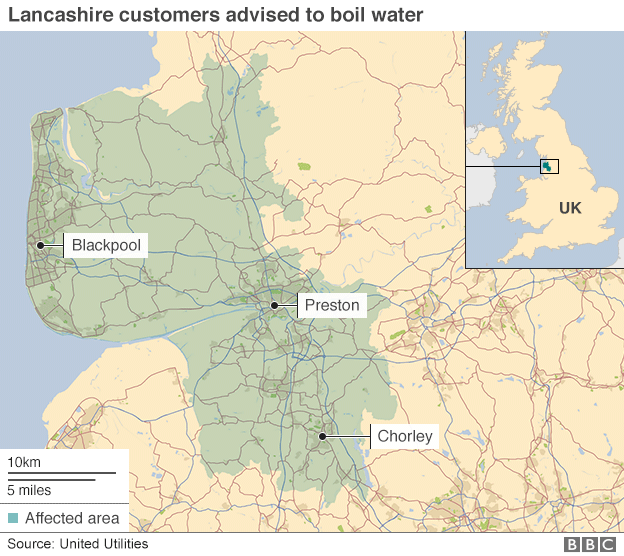
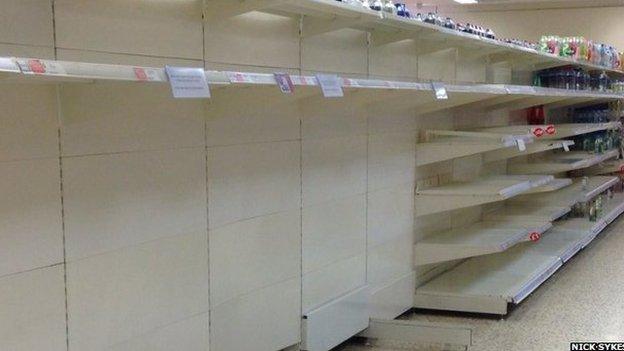
Nick Sykes submitted this picture of a Tesco at Kirkham, near Blackpool, stripped of bottled water on Friday
Kate Brierley, deputy director for Public Health England in Cumbria and Lancashire, told the BBC people could continue to drink boiled water in the affected areas, saying: "So long as the water's been boiled and cooled then that is perfectly fine for consumption."
She said there had been no reports of people falling ill so far, adding: "There is no specific treatment for cryptosporidiosis. In most cases the symptoms of abdominal pain and diarrhoea settle in a few days.
"However, in a few cases cryptosporidiosis can be unpleasant with diarrhoea lasting for several weeks. It is important to drink plenty of fluids to avoid dehydration."

Water advice includes
Use tap water for general domestic purposes such as bathing, flushing toilets or washing clothes
All water for drinking, food preparation and brushing teeth should be boiled as a precaution
It is safe to eat food after washing your hands
Using boiled water for washing dishes is the best practice
Dishwashers are safe as long the setting is at 65 degrees or above
Source: United Utilities

Louise Newton, manager of the Brookside Care Home in Bamber Bridge, said: "It's very demanding on a daily basis to meet residents needs," adding having to boil water "added extra tasks and pressure on the team".
Tesco in Chorley and Asda in Fulwood said they had "plenty" of bottled water on the shelves but had increased deliveries of stock to avoid running low.
Wholesalers Macro in Preston also had a good supply of bottled water on the shelves.
On Friday, Blackpool resident Robert Parker said local shops had sold out of bottled water.
He emailed the BBC saying he was not given any advice from United Utilities and had drunk several glasses of water before hearing the health warning on BBC news.

What is cryptosporidium?
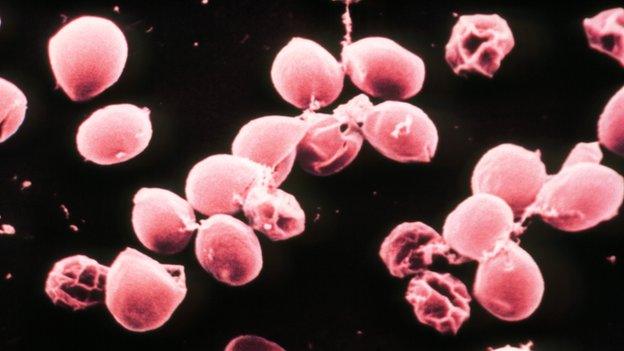
Cryptosporidium can cause diarrhoea and abdominal cramps
A microscopic parasite which lives in, or on, other organisms
Found in soil, water or food contaminated with animal or human faeces
Infection occurs via contact with infected animals in farms or zoos or by drinking contaminated water
One of the most common causes of diarrhoea in humans
It most commonly affects children under five but people with impaired immune systems are at risk
Source: Patient.info

United Utilities said that as soon as the contamination was confirmed, it had used BBC Radio Lancashire, automated phone and text messages, social media, and even leaflet drops to warn its customers.
"We have done everything we possibly can, in the quickest time possible, to inform our customers," said a spokesman.
Derek Gatherer "We'll know in four to seven days if there are any cases of cryptosporidium infection"
Cryptosporidium exists in the environment in a form called an oocyst, which is less than a tenth of the thickness of a human hair.
Infection with the parasite can cause diarrhoea and abdominal cramps.
People with weak immune systems are likely to be more seriously affected.
- Published7 August 2015
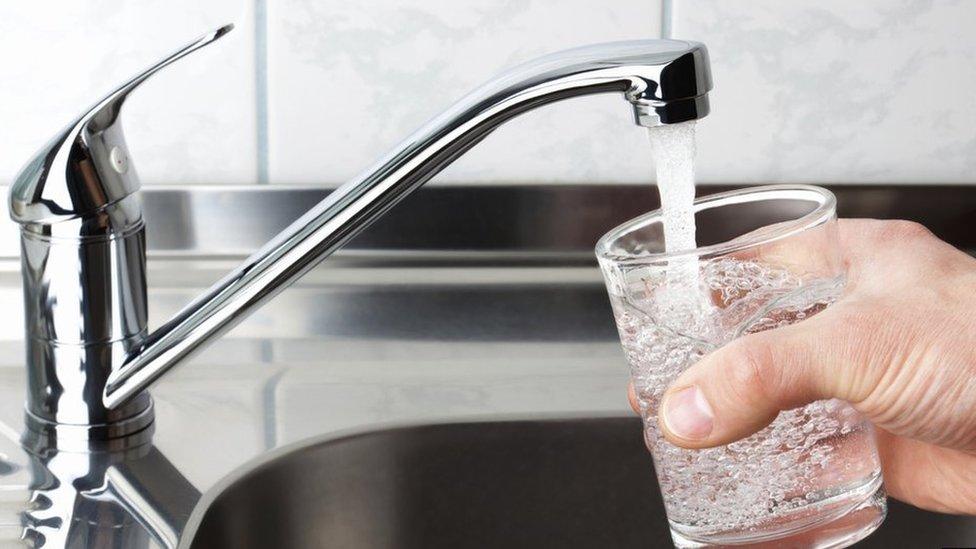
- Published7 August 2015
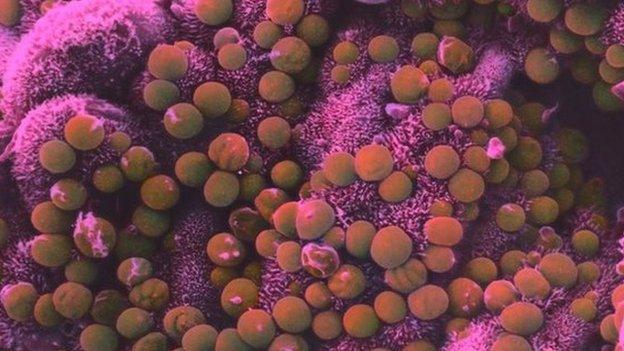
- Published6 August 2015
